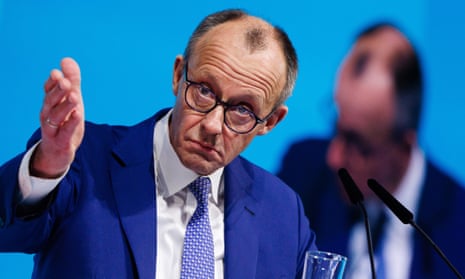The historic success of the far right in Germany’s federal election is a threat not only for all disadvantaged groups in this country – including women, immigrants, queer people, people of colour, Jewish people, disabled people – it is a threat to democracy that should concern everyone.
Understanding that this electoral breakthrough has made her party impossible to ignore, she toldreporters: “We’re now firmly anchored as a Volkspartei” – or “people’s party”, a term once used exclusively for the CDU/CSU and Olaf Scholz’s SPD as the big beasts of German politics.
As Merz begins the difficult task of assembling a coalition that forces his centre-right party to turn to a centre-left coalition partner, Weidel reminds him that her door is open too, “so that the will of the people might be implemented”.
The victories of conservative and far-right parties had been widely expected, so we celebrated the small victories instead: the pro-business FDP and the anti-immigrant populist party BSW didn’t make it into parliament; the Left tripled its votes since polls from December, from 3% to almost 9%.
Meanwhile, as the main opposition party, the AfD won’t have to dirty its hands with messy election results and compromise politics.

















.jpg?auto=webp&width=800)













